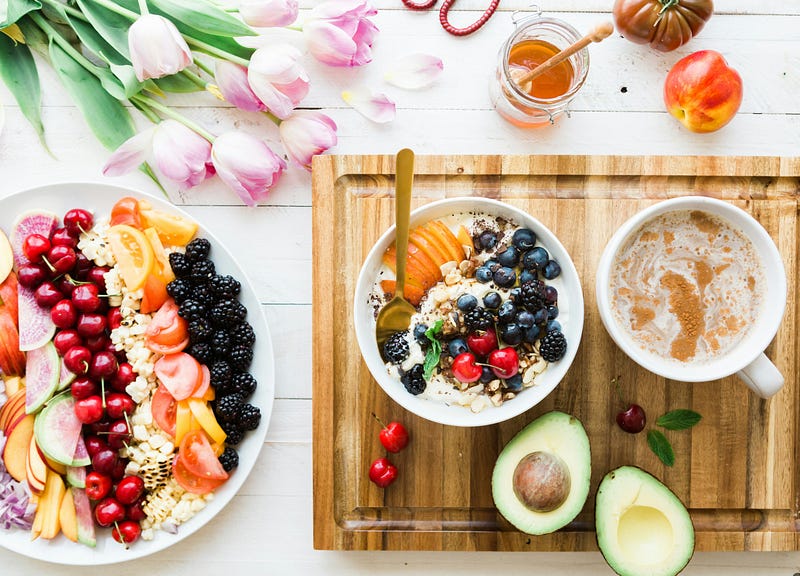Essential Healthy Aging Lifestyle Changes for a Longer Life

As we navigate the journey of life, the desire to age gracefully and healthily becomes a universal aspiration. Embracing essential healthy aging lifestyle changes is key to unlocking not only a longer life but a more fulfilling one. With numerous studies linking lifestyle choices directly to longevity and overall well-being, it’s clear that small, intentional adjustments can make a significant impact. In this article, we’ll explore effective anti-aging strategies that promote vitality and resilience, empowering you to thrive as the years go by. Whether you’re looking to improve your physical health, boost your mental acuity, or enhance your emotional well-being, these lifestyle changes for longevity will pave the way for a vibrant and enriched life. Join us as we delve into the transformative power of mindful living, enabling you to embrace each day with energy and enthusiasm.
Table of Contents
The Importance of Healthy Aging and Lifestyle Modifications
As we age, the importance of healthy aging becomes more than just a goal—it’s a way of life. Embracing lifestyle modifications can transform the way we experience our golden years, enhancing not just longevity but also the quality of life. Simple changes like staying active, eating well, and nurturing social connections can make a world of difference. Regular exercise, whether it’s a daily walk, yoga, or even dancing, boosts cardiovascular health and keeps you moving with ease. Pair that with a diet rich in fruits, vegetables, whole grains, and lean proteins, and you’ve got a recipe for sustained energy and vitality.
But healthy aging isn’t just about physical health—it’s about emotional and mental well-being too. Staying socially engaged, whether through family, friends, or community activities, combats loneliness and keeps your mind sharp. These small yet powerful habits are the longevity secrets that can help you live a fuller, more vibrant life.
If you’re ready to dive deeper into the science of aging and uncover more practical tips, “Aging Secrets” is your ultimate guide. This comprehensive ebook reveals how simple lifestyle changes can help you age gracefully and enjoy every moment to the fullest. Discover the secrets to a longer, healthier life here.
Nurturing Your Health: Key Factors in Healthy Aging
As we journey through life, embracing the concept of healthy aging becomes essential to enhancing our quality of life. Nurturing your health doesn’t just involve physical aspects; it encompasses mental, emotional, and social wellness, too. Integrating healthy aging tips into your daily routine can significantly impact how you feel as you grow older. Simple adjustments, like maintaining a balanced diet rich in nutrients, staying physically active, and prioritizing adequate sleep, can lead to profound improvements in vitality and longevity.

Moreover, it’s crucial to foster mental health through engaging activities that stimulate the mind. Reading, puzzles, or learning new skills not only keep cognitive functions sharp but also contribute to emotional well-being. Additionally, staying connected with family, friends, and community can provide a support network that is invaluable for emotional health. Social interactions can combat feelings of loneliness and depression, which are common concerns for seniors. Thus, embracing wellness for seniors involves both physical health and emotional connections, creating a holistic approach to aging gracefully.
Incorporating regular check-ups and being proactive about health screenings can also be vital components of healthy aging. Understanding your body’s needs and potential health concerns allows for early detection and management of various conditions. It’s equally important to be mindful of mental health by recognizing stressors and seeking professional help when needed. Mindfulness practices, like meditation and yoga, can enhance both mental clarity and physical flexibility, promoting a sense of peace and balance in life.
Ultimately, nurturing your health as you age is an ongoing journey that calls for adaptability and commitment. By embracing holistic strategies, from physical activity and nutritious eating to social engagements and mental wellness practices, you can create a fulfilling lifestyle. With the right mindset and a focus on the essential aspects of health, you can pave the way for a vibrant and enriched later life, filled with joy and purpose.
Nutritional Strategies for Healthy Aging
As we age, maintaining our health and vitality becomes imperative, and adopting nutritional strategies plays a vital role in this process. A well-balanced diet rich in essential nutrients can help mitigate age-related health decline, positively impacting our physical and cognitive well-being. One of the key components of a healthy aging lifestyle is ensuring adequate intake of fruits and vegetables, which are packed with vitamins, minerals, fiber, and antioxidants. These nutrients help protect cells from oxidative stress and inflammation, both of which can accelerate aging. Incorporating a variety of colors on your plate can ensure you’re receiving a broad spectrum of beneficial compounds.

In addition to increased fruit and vegetable consumption, healthy fats should be a staple in the diets of older adults. Sources of omega-3 fatty acids, such as fish, flaxseeds, and walnuts, promote heart health and may support brain function. Pairing healthy fats with whole grains can enhance nutrient absorption, providing sustained energy levels throughout the day. Whole grains, rich in fiber, also aid in digestion and help regulate blood sugar levels, crucial factors for preventing metabolic disorders often associated with aging. It’s also important to stay hydrated, as dehydration can lead to several health issues and may often be overlooked.
Protein needs can shift with age, making it essential to include quality protein sources in your diet. Lean meats, fish, eggs, legumes, and dairy products all contribute to muscle maintenance and repair, helping counteract the natural loss of muscle mass that occurs with aging. Moreover, understanding the role of portion control and mindful eating cannot be understated. Keeping track of one’s food intake and being conscious of hunger cues can facilitate maintaining a healthy weight, reducing the risk of chronic diseases such as diabetes and heart disease.
Ultimately, making healthy aging lifestyle changes involves a multi-faceted approach. It’s not just about the food on our plates; it also encompasses maintaining a balanced diet, staying physically active, managing stress, and fostering social connections. These interconnected elements synergistically contribute to a higher quality of life, allowing individuals to enjoy their later years with greater health and happiness. By prioritizing nutrition and adapting our eating habits to meet the needs of our aging bodies, we can pave the way for a vibrant and fulfilling life.
Exercise Essentials for Aging Well
Embracing a healthy aging lifestyle requires a multifaceted approach, and one of the cornerstones is consistent exercise. As we age, our bodies undergo various changes that can lead to decreased muscle mass, bone density, and balance. This is why engaging in regular physical activity becomes imperative. Exercise doesn’t have to be overly strenuous; even moderate activities like walking, swimming, or cycling can make a significant difference in enhancing physical health and overall well-being.
Incorporating strength training into your routine is particularly beneficial for older adults. It helps to combat muscle loss and promotes bone health, reducing the risk of osteoporosis. Resistance exercises, even with light weights or resistance bands, can enhance strength and functionality, making daily tasks easier and fostering greater independence. Additionally, flexibility and balance exercises, such as yoga or tai chi, can improve coordination and reduce the risk of falls—a common concern for aging individuals.

Mental well-being is equally important in a healthy aging lifestyle, and physical activity is known to enhance cognitive function. Regular exercise stimulates the release of feel-good hormones, which can reduce symptoms of depression and anxiety. Engaging in social physical activities, like group classes or community sports, also fosters social connections, combating feelings of loneliness that can accompany aging. Thus, incorporating a social aspect into your exercise routine can enrich your overall quality of life.
Ultimately, making exercise a priority is a vital component of healthy aging lifestyle changes. It’s essential to find activities that one enjoys, as this increases the likelihood of sticking to a routine. Whether it’s dancing, gardening, or hiking, the key is consistency and enjoyment. With a commitment to staying active, older adults can enhance their physical health, boost mental resilience, and achieve a fulfilling and balanced life as they navigate the later years.
Final Thoughts
Aging is a natural part of life, but how we age is largely within our control. By embracing healthy aging lifestyle changes, you can not only extend your lifespan but also enhance the quality of your years. From staying active and eating well to nurturing social connections and practicing mindfulness, every small step counts.
If you’re ready to take control of your aging journey, “Aging Secrets” is here to guide you. This comprehensive ebook offers practical tips and insights to help you live a longer, healthier, and more fulfilling life. Discover the secrets to aging gracefully here.
FAQs:
1. What are the most important lifestyle changes for healthy aging?
Regular exercise, a balanced diet, social engagement, and mental wellness practices are key.
2. How does sleep affect aging?
Quality sleep supports cognitive function, emotional well-being, and overall health, making it essential for healthy aging.
3. Can social connections really impact how long I live?
Yes! Strong social ties reduce loneliness, improve mental health, and are linked to longer life expectancy.
4. What’s the best way to stay active as I age?
Find activities you enjoy, like walking, yoga, or dancing, and aim for consistency.
5. How can I learn more about healthy aging?
Explore “Aging Secrets”, a comprehensive guide to living a longer, healthier life. Click here to learn more.




